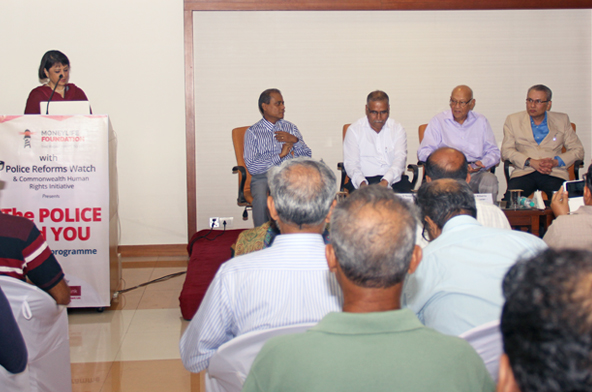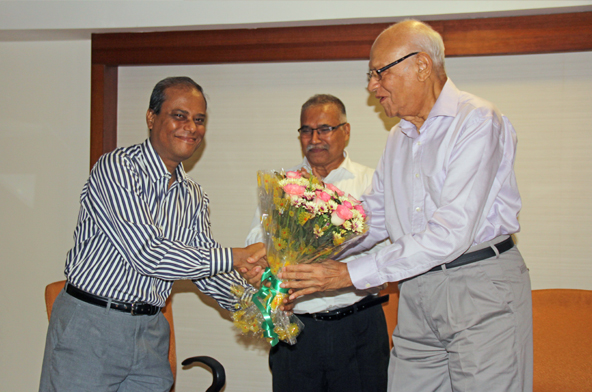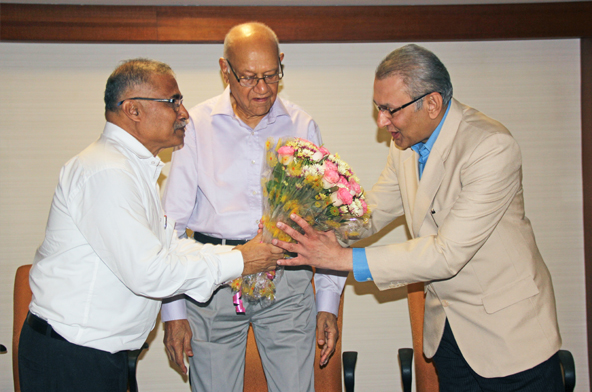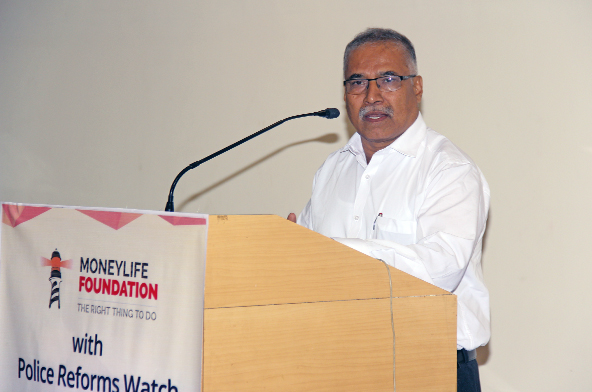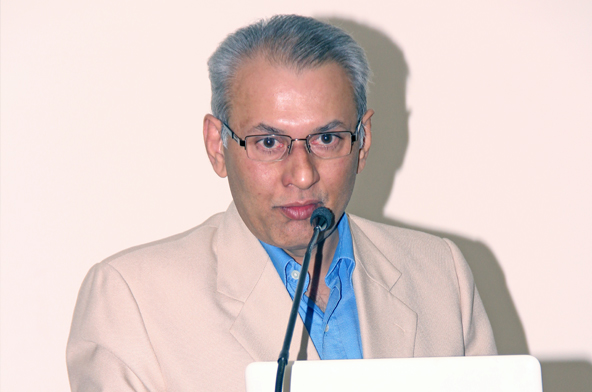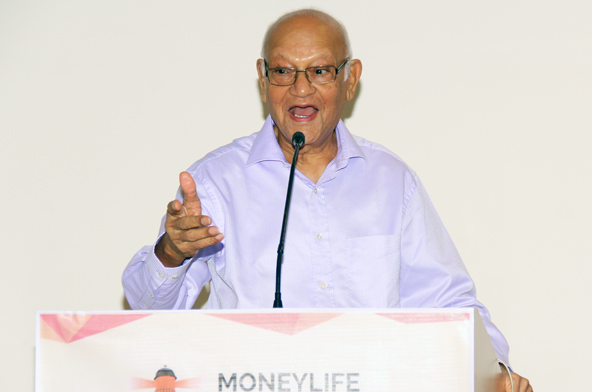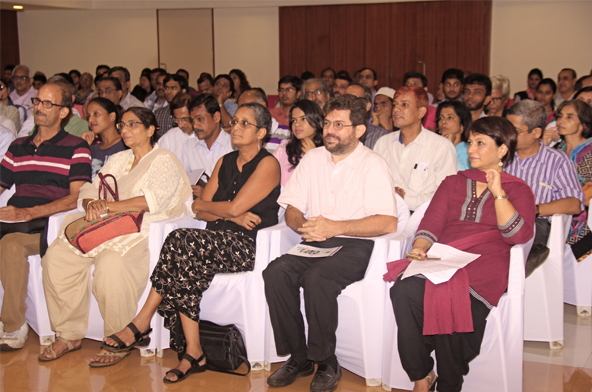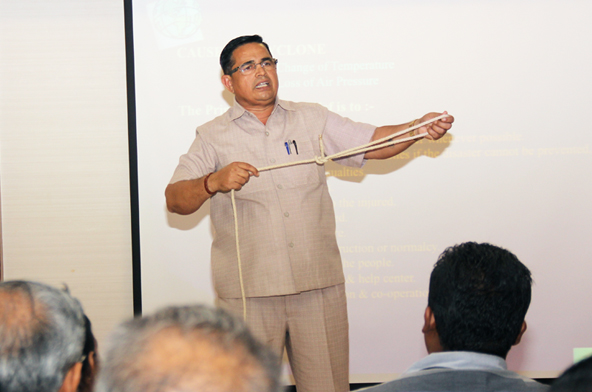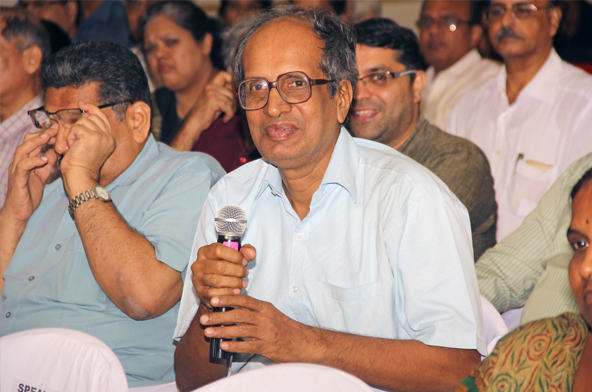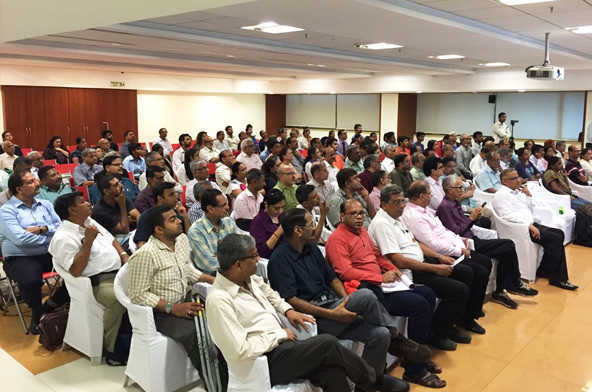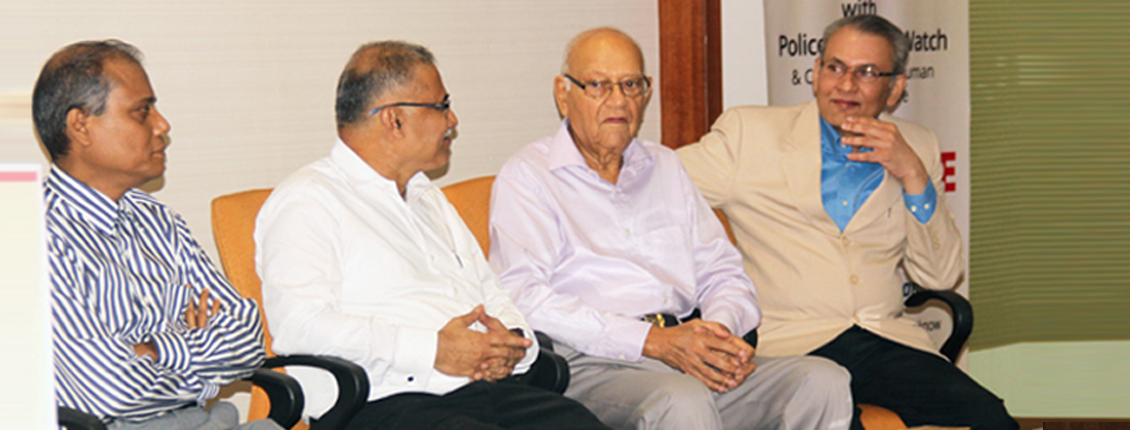
“Citizens have to play an important and active role to make sure you get the best from the government. This 12-week program is a right step in bringing together police force and public. This will help citizens to understand their rights,” said Julio Ribeiro, the former Commissioner of Police, Mumbai, and India’s first “super cop”. Mr Ribeiro launched the 12-week programme, “The Police & You” in Mumbai on Wednesday, the first of which was attended by more than 150 people today.
Moneylife Foundation with Police Reforms Watch & Commonwealth Human Rights Initiative and with support from Saraswat Bank has launched the 12-week program that aims to spread knowledge about protecting yourself, your rights, the Indian Penal Code (IPC), cybercrime and economic offences.
Mr Ribeiro said, “Today we can use RTI and other instruments to get justice. But remember, you need to raise your voice whenever there is injustice. Some NGOs are doing good work in that area. In fact, I doubt if there would be justice without such NGOs.”
The event was held in the well-appointed auditorium of Saraswat Bank headquarters, Eknath Thakur Bhavan. Speaking on the occasion, Gautam Thakur, Vice Chairman of Saraswat Bank said, “I have a big soft corner for anyone in uniform, be it the police or the military. My father Eknath Thakur always used to say that India is the only country, which does not respect bravery. During his lifetime he made sure bravehearts are honoured whenever possible. After the Mumbai terror attack, he met families of the martyrs and many of the kin of these martyrs are employed by Saraswat Bank. With these principles of my father, it was natural for me to offer any help to Moneylife Foundation for this wonderful initiative to inform citizens about civil defence and police force.”
Introducing the concept behind the 12-week programme, Dolphy A D’souza, Convenor of
Police Reforms Watch said, “We have worked together on the program for each week and we hope this series will make citizens aware about their right and duties”.
The inaugural session on “Role of citizens Disaster Management Flood & Cyclone” was conducted by SB Bagat, DD Gharat and BS Pagdhare from the Directorate of Civil Defence of Maharashtra Govt. Shivajirao B Bhagat, a gold medallist in Disaster management training with 32 years of experience, conducted the session and started by providing some background about the role of civil defence in society and the various kinds of training programmes that the directorate conducts.
He said that managing a disaster requires proper planning and constant monitoring. This includes identification of disaster, vulnerability analysis, hazard analysis, risk analysis, resource analysis, and control measures like awareness building, warning systems, action plans and procedures.
In most disasters one comes across certain common types of problems like, building collapse, people trapped or injured, people becoming homeless, breakdown of communication including accessibility to the site of disaster, animals dead or injured, hygiene and sanitation problems, and breakdown of law and order.
In such cases, the response should have teams for rescue, first aid, ambulance, firefighting, welfare, veterinary, communication as well as police and paramilitary forces, including home guards, the officials from the CDO said.
Citing some examples, like the 1993 Latur earthquake, he said that there was no contingency plan, no traffic control, no briefing to police personnel, and no coordination among various authorities and agencies.
Earlier, it had a significant role to play in managing civil issues during war time, but these days it plays a prominent role in disaster management. Since 1968 more than thirty thousand civil defence volunteers had been trained for emergency causes, said Mr Bagat.
He took the audience through Civil defence has classified into two divisions namely man-made disasters and natural disasters. The man-made disasters were classified into gaseous disaster, biological, acid related disaster, that caused by effluents, nuclear disaster, fire, sabotage and explosive devices .The natural disasters were classified into flood, cyclone and earthquakes.
Mr Bagat enthralled the audience by showing some simple knots that are used in rescue-related work or to climb out of dangerous situations. He also explained as to what people should do to protect themselves and to minimise damage in different situations such as an earthquake or a blast — for instance, he said people should quickly lie down with elbows on the ground protecting the heart from possible shock, fingers in the ear and heads down when faced with a sudden bomb blast. Ideally, clenching a handkerchief in the mouth also protects a person from the effects of shock. This protects people because the shrapnel usually scatters at a 30-degree angle away from the ground. Similarly, when faced with toxic gas, he said the gas usually rises to higher levels, so lying on the ground acts as a protection. Since cloud bursts and flooding have begun to occur all over the city, the presentation included a film which showed how bottles and everyday use containers can be quickly converted into floatation devices to save oneself.


